Customer Portal 101: Features, Benefits & Top Tools for 2026
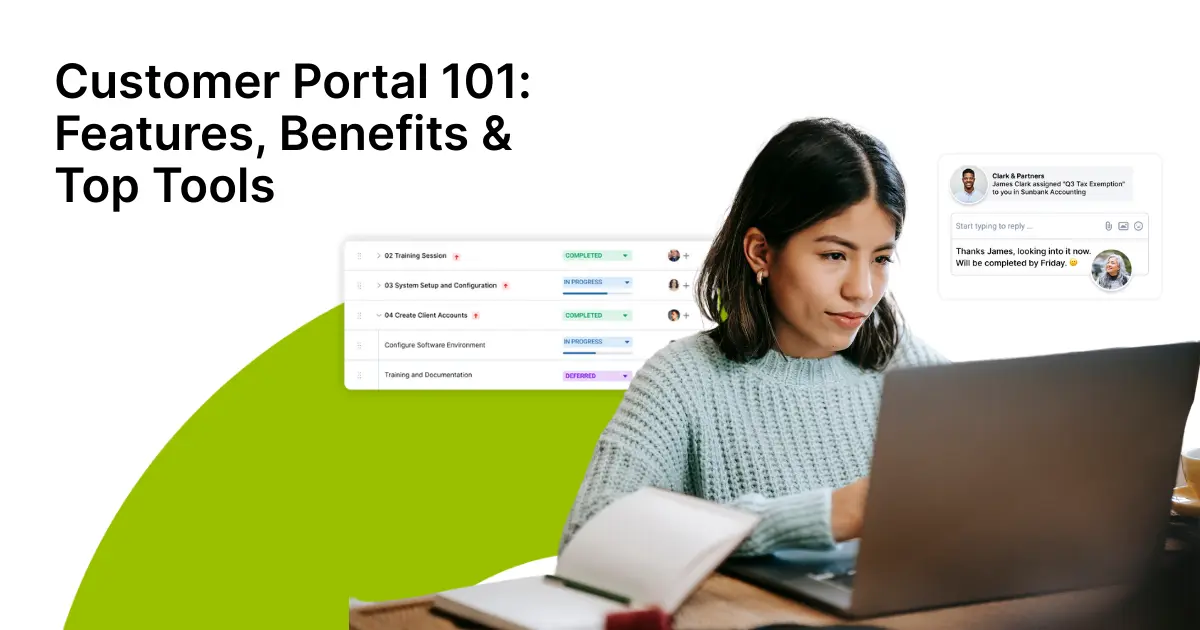
95% of B2B buyers say self‑service portals improve purchasing efficiency—with two‑thirds saving a whopping 30 to 60 minutes per transaction. That’s nearly an hour your customers can reclaim—and a huge value proposition your business shouldn’t ignore.
In case you’re unfamiliar, a customer portal is a secure, self‑service hub where people can track orders, manage accounts, get help, and skip the endless email chains and hold music. For businesses, it’s not just about convenience—it’s about slashing support burdens, boosting customer satisfaction, and keeping your brand polished and efficient.
In this guide, we'll walk through everything you need to know about what makes customer portals like Clinked important: what they are, the benefits of investing in them, the essential features that make them successful, and the top software solutions available in 2026. Whether you're a professional services firm that accesses important information like client documents or a SaaS company looking to reduce support cases, you'll learn how to choose and implement a customer portal that transforms your client relationships.
What exactly is a customer portal?
A customer portal is your company's private digital workspace where clients can log in to access services, customer information, and tools specific to their account. Think of it as a secure online hub where clients can manage their customer accounts and relationships with your business without needing to call, email, or wait for assistance.
Unlike your public website, a customer portal sits behind a login wall and provides personalized access to account-specific and sensitive information. Customers might use it to track orders, download invoices, submit support tickets, manage subscriptions, or collaborate on projects. For businesses, portals reduce routine customer requests while providing customers with 24/7 access to business self-service functions and what they need.
The benefit of a well-designed customer portal is its ability to serve both parties, with extensive security measures included. Customers self-serve and get immediate access to information, and can resolve their own issues independently. Businesses reduce operational costs, improve response times, and can focus their support teams on complex problems that genuinely require human attention.
Here's what makes customer portals different from regular websites: personalization, security, and functionality. When a customer logs in to their portal, they see only their data, projects, and communication history. Everything in the customer's history is tailored to their specific needs and protected by secure authentication.
What's the difference between customer portals vs client portals?
The terms "customer portal" and "client portal" are often used interchangeably, but they serve slightly different audiences and purposes.
Customer portals typically cater to a broader audience with more transactional relationships. Think e-commerce customers tracking shipments, SaaS users managing subscriptions, or banking customers checking account balances. The focus is on self-service, quick access to information, and resolving common issues independently.
Client portals, on the other hand, are designed for deeper, ongoing business relationships that often involve sensitive customer data. Professional services firms, agencies, and consultants use client portals for collaboration, project management, and secure document sharing. These portals often include additional features like task management, approval workflows, and real-time communication tools.
Effective client collaboration becomes critical when managing multiple projects simultaneously, and the right portal can make the difference between chaos and seamless coordination.
Why do businesses need customer portals?
The business case for customer portals goes far beyond convenience—it's about meeting evolving customer expectations while building better service efficiency to boost customer satisfaction.
Modern customers expect immediate access to information. They don't want to wait hours to check their account status, download a document, or get answers to simple questions. In fact, 73% of customers use self-service at some point in their customer service journey.
From a business perspective, customer portals address several operational challenges:
- Support cost reduction: Every question answered through the portal is one less support ticket your team needs to handle. When customers can find answers independently, your support team can focus on complex issues that truly require human expertise.
- Boost customer satisfaction: Nobody enjoys being put on hold or waiting days for email responses. Research shows that 69% of consumers prefer using self-service portals over speaking to a human agent. Portals provide instant gratification—customers get what they need when they need it. This immediacy translates into higher satisfaction scores and stronger customer relationships.
- Enhanced security: Data security for client information becomes more manageable when sensitive documents and communications are centralized in a secure portal rather than scattered across email threads and file-sharing services.
- Valuable insights into customer behavior: Portals generate valuable data about what customers access, when they access it, and what they're looking for. These insights can inform product development, content creation, and customer support strategies.
- Scalability: As your business grows, a well-designed portal can handle increased customer volume without proportionally increasing your support staff.
Which essential features does every customer portal need?
The difference between a portal that transforms your customer relationships and one that becomes another underused tool lies in the features you choose to include.
Secure document storage and sharing
Your portal should serve as a centralized location for all customer-related documents. Customers need easy access to invoices, contracts, reports, and any other system files relevant to their account. Document management systems should include version control, so customers always access the most current files while maintaining access to previous versions when needed.
Real-time communication tools
Modern customer portals include messaging capabilities, discussion threads, and comment systems that keep all communication centralized. This eliminates the email chaos that often plagues business relationships and ensures nothing gets lost in overflowing inboxes.
Self-service knowledge base
According to research, 83% of customers would use a community forum as a self-service support knowledge base. Your portal should include guidance like searchable FAQs, how-to guides, video tutorials, support channels, and troubleshooting resources that customers can access anytime.
Task and project management
For service-based businesses, the ability to assign tasks, track project progress, and manage approvals within the portal streamlines workflows and keeps everyone aligned. Legal project management software shows how specialized portals can transform industry-specific workflows.
Custom branding and white-labeling
Your portal should look and feel like an extension of your brand. Custom domains, branded interfaces, and personalized email notifications create a seamless customer experience that reinforces your professional image.
Role-based access control
Your portal should support granular permission account settings, ensuring customers, partners, and internal team members only see the relevant information for their role.
Mobile responsiveness
Customers expect to access their portal from any device. Customer support happens on the go, like on a train on the way to work, or in a cafe during a lunch break.
Integration capabilities
Your portal should connect seamlessly with your CRM, accounting document management software, project management tools, and other business systems to avoid duplicate data entry and ensure consistency.
Top 7 customer portal software solutions in 2026
Choosing the right customer portal software can make or break your implementation success. Here's our analysis of the leading solutions available in 2026, based on features, user feedback, and industry performance.
Clinked: the complete secure collaboration platform
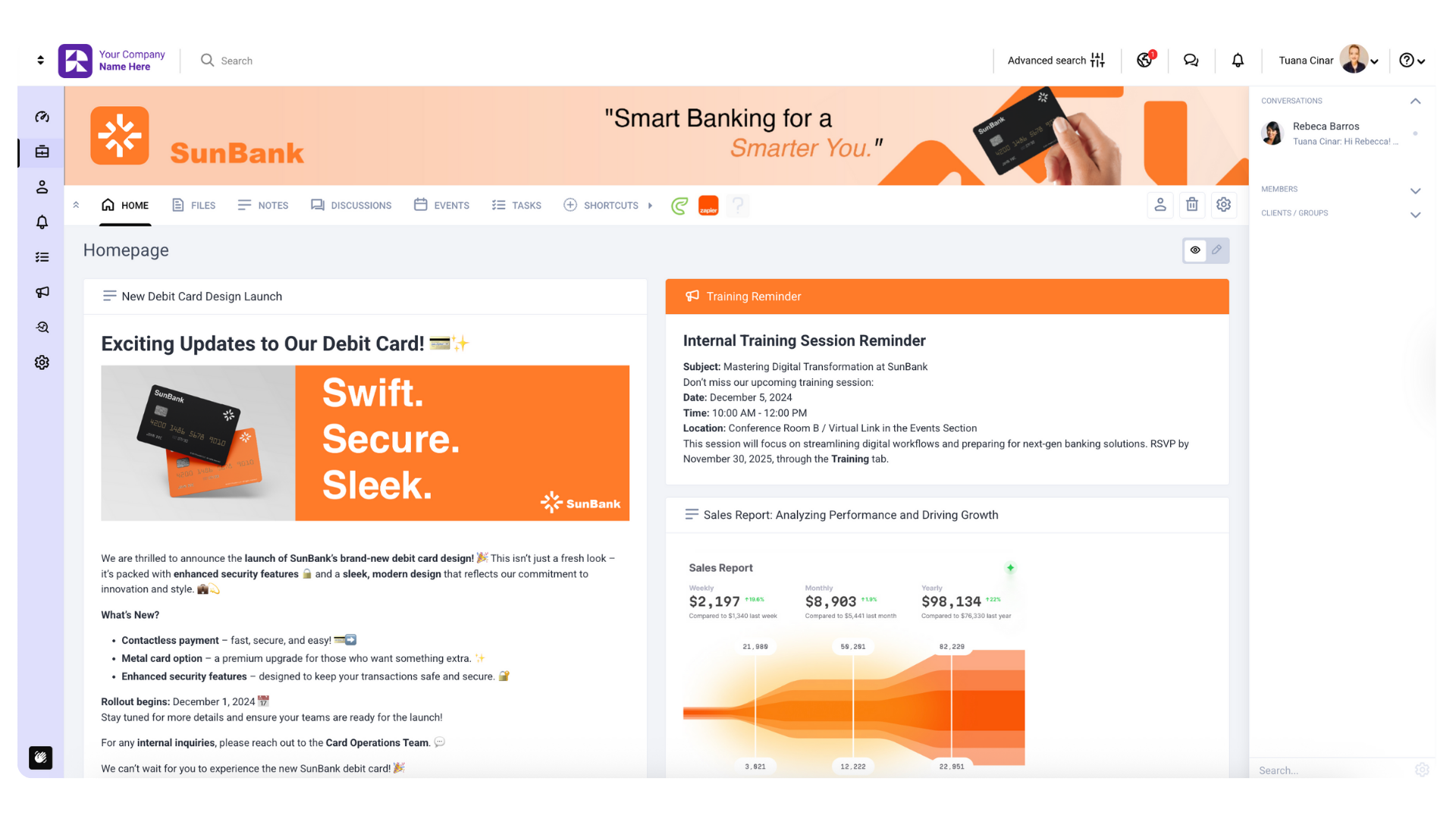
Clinked is a secure, cloud-based customer portal that makes client interactions faster, enhances collaboration, and provides easy access to essential business documents and communications—all within a fully customizable platform.
Clinked is ideal for finance, legal services, consulting, and SaaS, to name a few industries. It combines enterprise-grade security, third-party app integrations, and an intuitive user interface for great client communication. Our features support client project management, sensitive document storage, and self-service resources for a professional, white-labeled experience that’s tailored to your company’s brand.
Best for: Professional services, agencies, consultants, and any business requiring secure document sharing with custom branding.
Key features
- Secure file sharing and collaboration, including customer data, contracts, or financial reports.
- White-label customization with fully branded portals: logos, colors, domain names, and personalized email notifications
- Centralized client communication and task management by assigning tasks, setting deadlines, and engaging in discussions on one platform
- Mobile-friendly access 24/7 to files, messages, and tasks
- Advanced security, compliance, and encryption for finance, law, and healthcare industries
Pricing
Starting at $95 per month, with custom enterprise pricing available.
User feedback
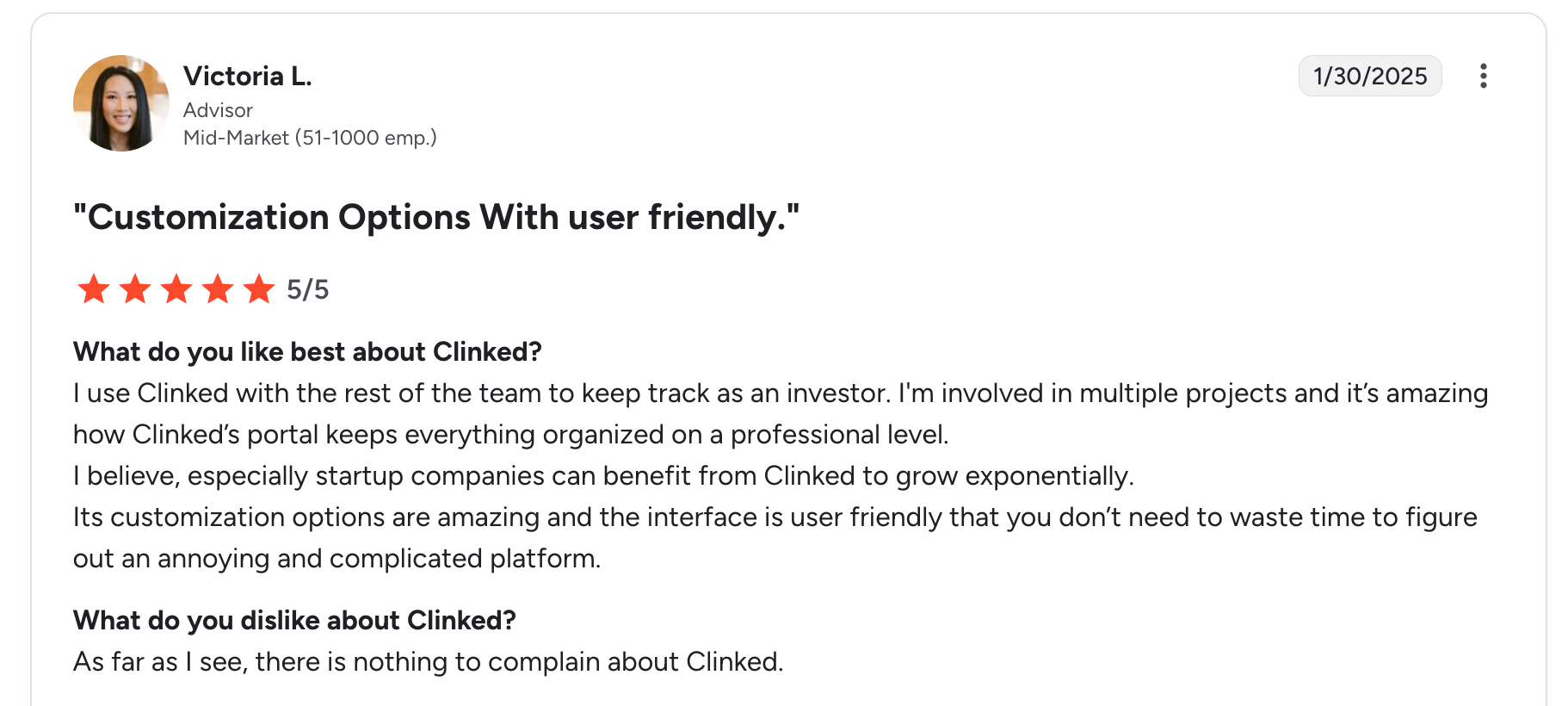
Implementation with Clinked
Getting started involves three key steps: customizing your brand appearance, setting up user roles and permissions, and then importing your existing documents and client data. The platform's intuitive setup wizard guides you through each stage, and their support team offers personalized onboarding sessions.
Book a demo with Clinked to discover how to work smarter when dealing with customers.
Zendesk Guide: AI-powered customer support
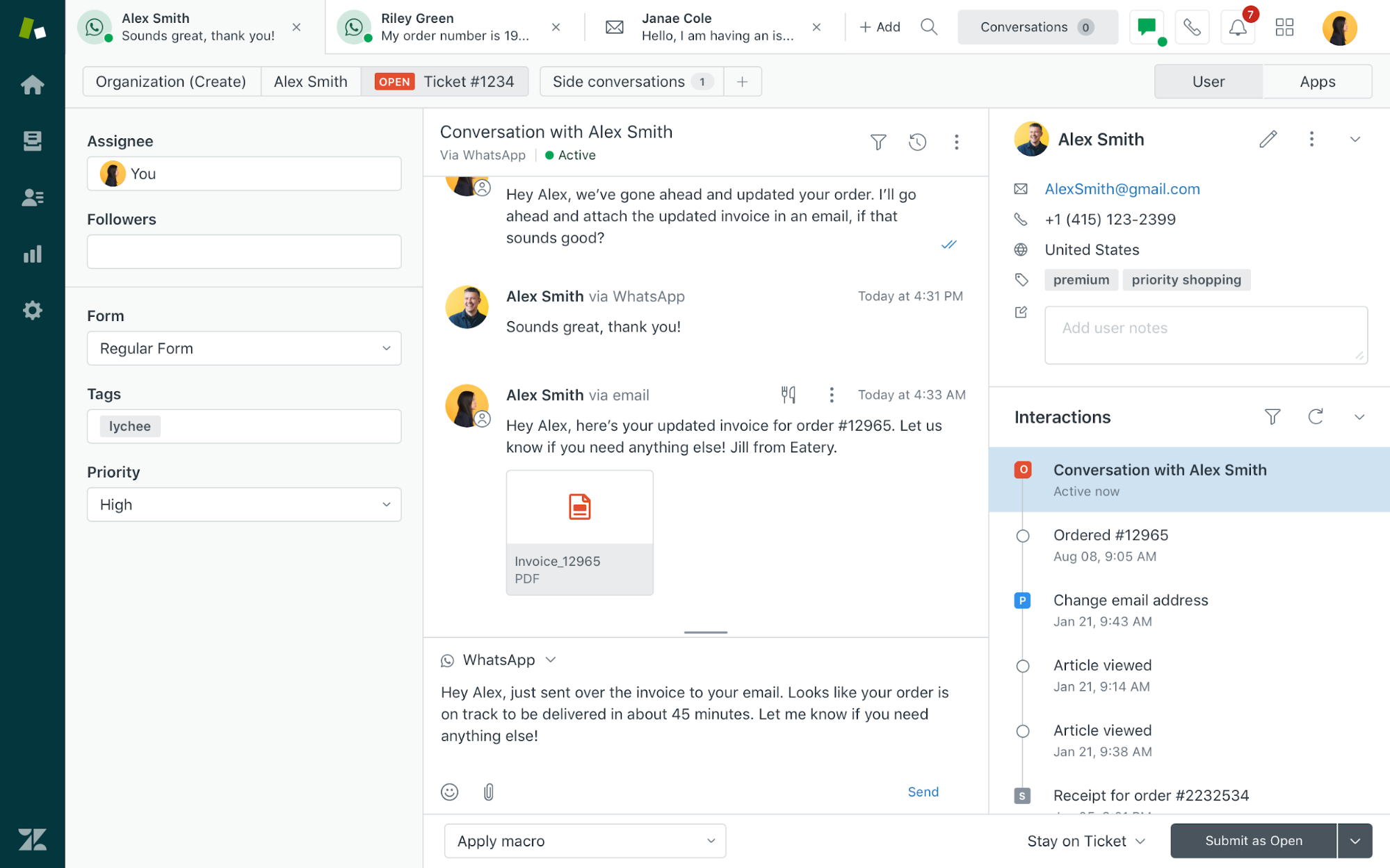
Zendesk Guide focuses heavily on customer support automation with an extensive knowledge base and integration with Zendesk's support tools.
Best for: Mid-size to large companies looking for scalable customer service.
Key features
- AI-powered article suggestions and search functionality
- Seamless integration with Zendesk Support for ticket management
- Community forums and user-generated content capabilities
- Multi-language support with automated translations
- Advanced analytics and performance tracking
- Customizable themes and branding options
Pricing
Starting at $19 per agent per month as part of Zendesk's support suite.
User feedback
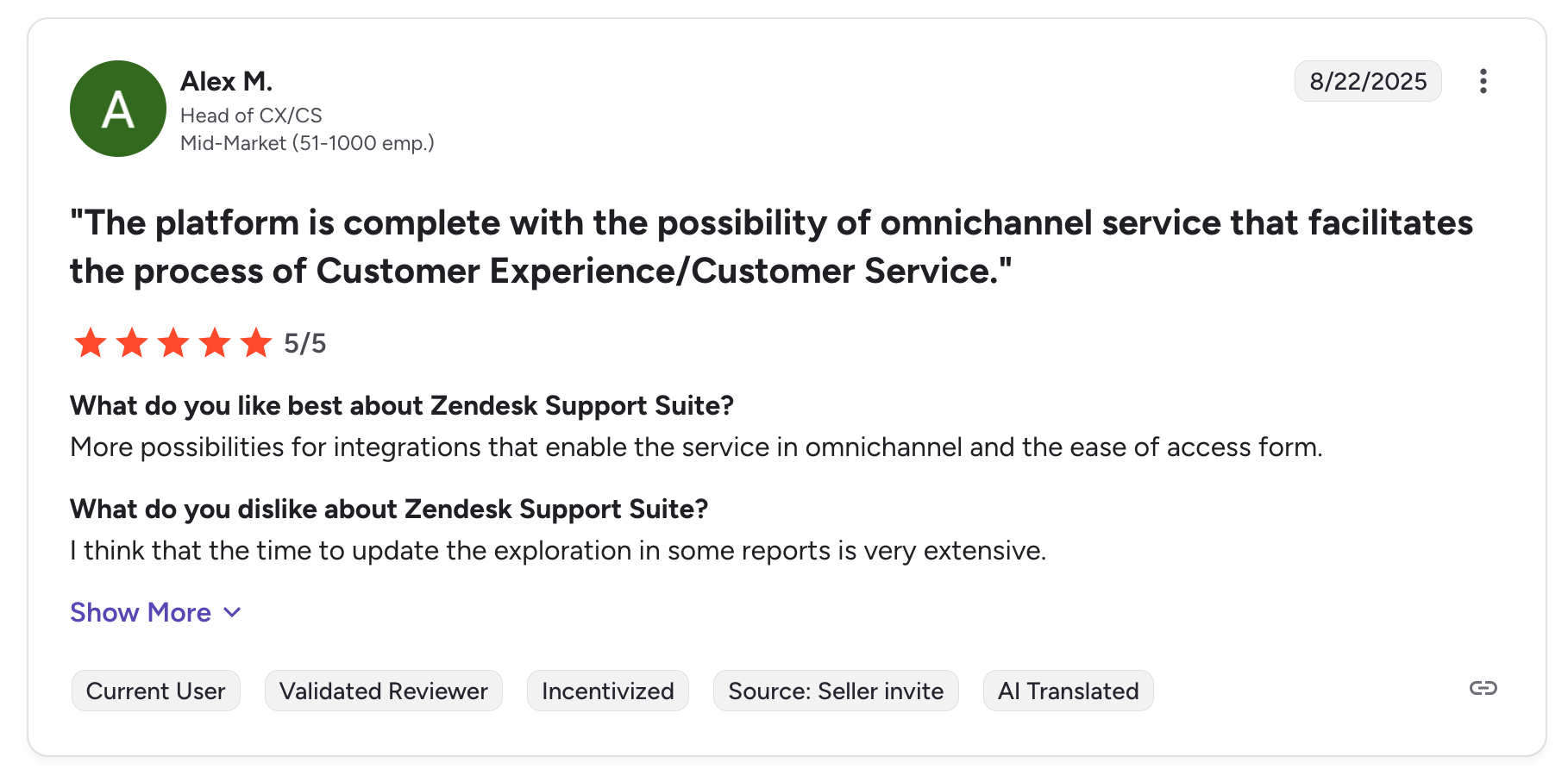
Freshdesk: multi-channel customer engagement

Freshdesk is a multi-channel customer portal solution with strong automation features and multi-channel support capabilities.
Best for: Growing businesses that need customer support with community features.
Key features
- Multi-channel support, including email, chat, phone, and social media
- Workflow automation with custom rules and triggers
- Community forums with gamification elements
- Customer satisfaction surveys and feedback collection
- Marketplace with 200+ integrations
- Mobile apps for both agents and customers
Pricing
Starting at $15 per agent per month with scalable plans.
User feedback
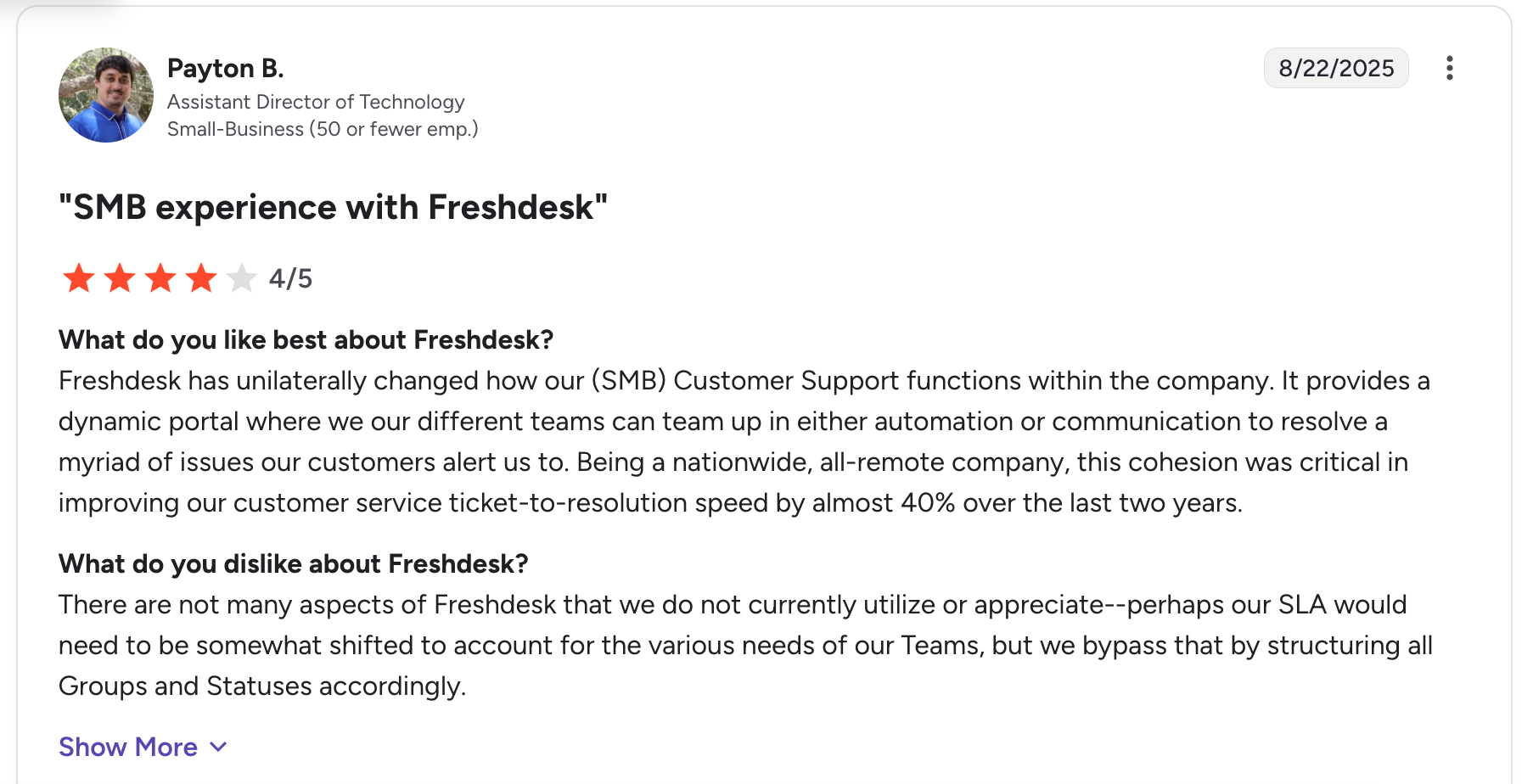
Salesforce Experience Cloud: enterprise-scale CRM integration

Salesforce Customer Experience Cloud delivers deep CRM integration with AI agent capabilities, designed for large organizations with complex customer relationships.
Best for: Enterprise organizations or those requiring deep customer data management.
Key features
- Deep integration with Salesforce CRM and marketing automation
- AI-powered personalization with Einstein capabilities
- Drag-and-drop site builder with responsive templates
- Advanced analytics and customer journey tracking
- Enterprise-grade security and compliance features
- Extensive customization options for complex workflows
Pricing
Starting at $25 per user per month, with the ability to upgrade.
User feedback
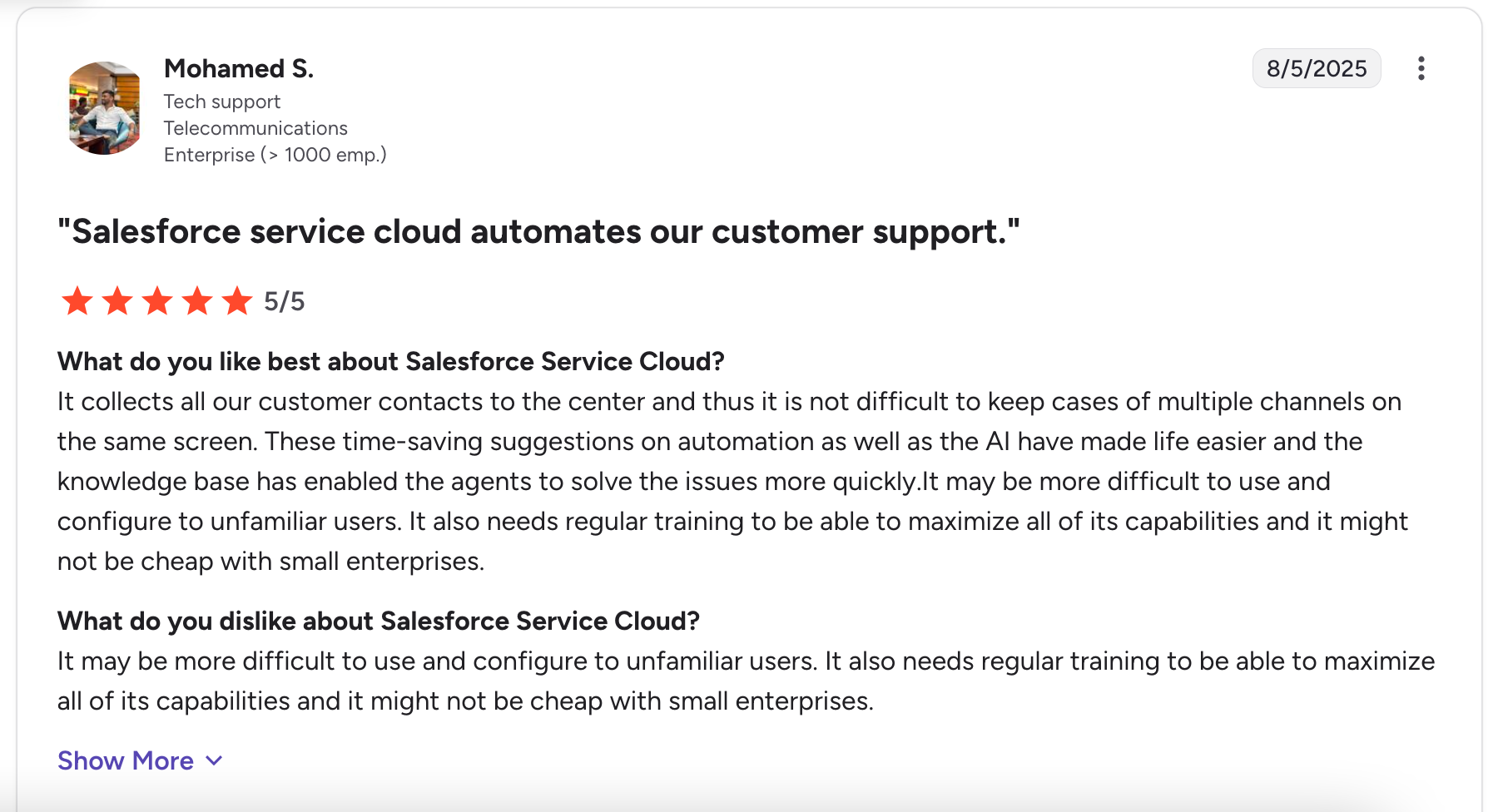
Copilot: streamlined agency collaboration
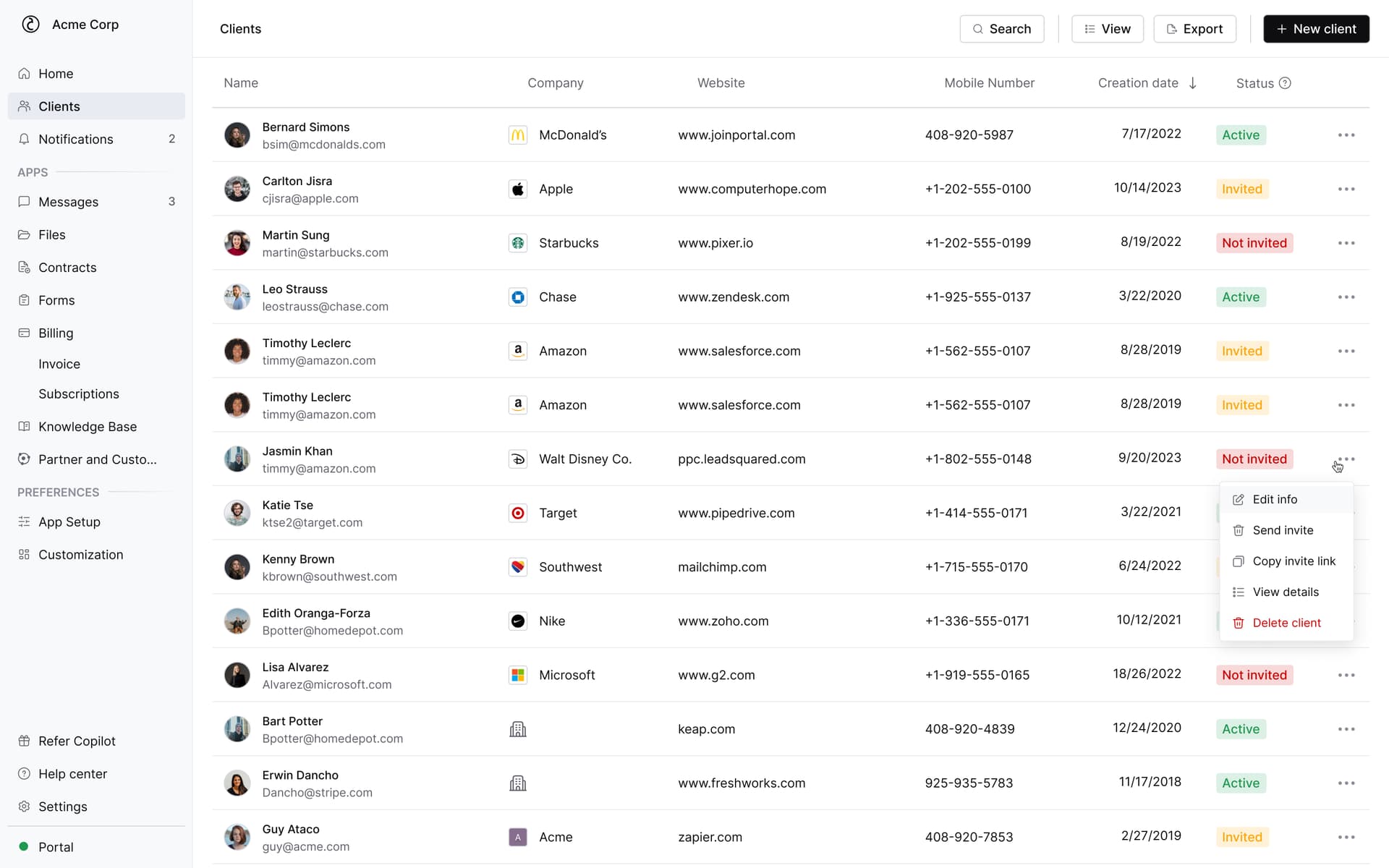
Copilot targets creative agencies and project-based businesses with a focus on simplicity and visual project management.
Best for: Creative agencies and project-based businesses needing streamlined client collaboration.
Key features
- Visual project management with timeline views
- Time tracking and project profitability analysis
- Client feedback collection and approval workflows
- Branded client proposals and contracts
- File sharing with version control
- Team collaboration with internal comments
Pricing
Starting at $39 per month for unlimited users.
User feedback

SuiteDash: all-in-one business management
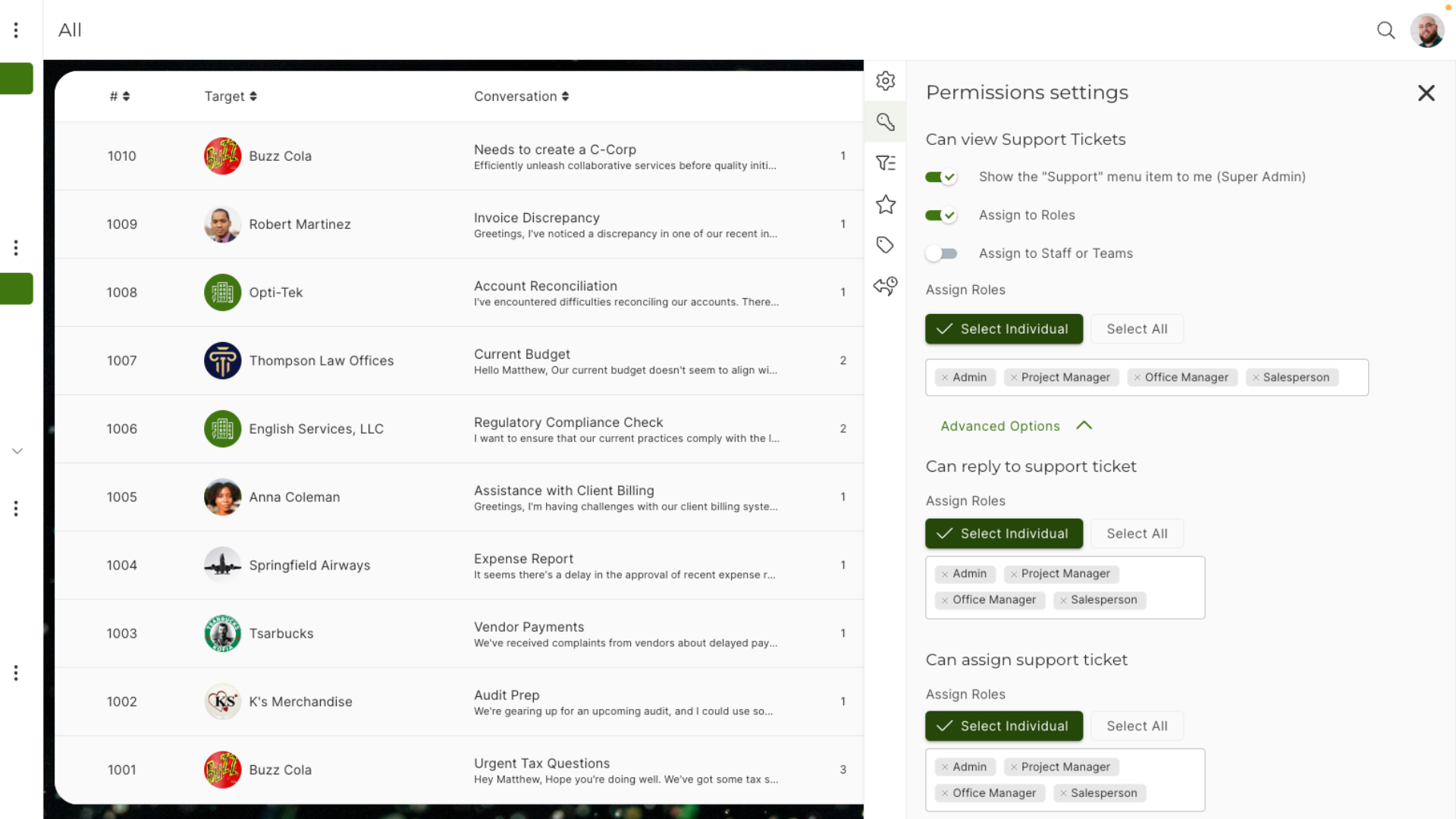
SuiteDash combines the customer portal functionality with business management tools, creating an integrated solution for small to medium businesses.
Best for: Service-based, small to medium businesses like consultants, law firms, and finance companies.
Key features
- Integrated CRM with pipeline management
- Project management with time tracking
- Invoice creation and payment processing
- Document storage and sharing
- Custom-branded client portals
- Email marketing and automation tools
Pricing
Starting at $19 per user per month with basic feature access.
User feedback

For businesses evaluating alternatives, our SuiteDash competitors comparison provides detailed insights.
HappyFox: support-focused portal solution

HappyFox is primarily a help desk software with strong workflow automation and ticket management features.
Best for: Support-focused teams who want to use community forums for customer collaboration.
Key features
- Advanced ticket routing and seamless escalation self-service
- Knowledge base with AI-powered suggestions
- Community forums and user collaboration
- Customer satisfaction tracking and surveys
- Workflow automation with custom triggers
- Integration with popular business tools
Pricing
Starting at $24 per agent per month with scale plans for unlimited chats.
User feedback

How do you choose the right customer portal for your business?
Selecting the right customer portal software requires balancing your immediate needs with future growth plans, while considering your existing systems, industry requirements, technical capabilities, and pain points.
When choosing a customer portal, start with your core objectives and industry requirements. Then, evaluate the tool’s technical capabilities, integration, and white-labeling. Finally, consider whether the customer portal will be able to grow with you.
For businesses prioritizing security, customization, and client collaboration, Clinked offers an ideal balance of features, ease of use, and professional presentation. The platform's white-label capabilities ensure your portal feels like a natural extension of your business, while bank-grade security protects sensitive client information.
Ready to see how a professionally branded, secure customer portal can transform your client relationships? Book a Clinked demo today.
FAQs
Which customer portal software received the highest user ratings in 2026?
Based on user reviews across multiple platforms, Clinked consistently receives the highest ratings (4.9/5 on G2) for customer portal functionality, particularly praised for its security features, white-label customization, and ease of use. Copilot and SuiteDash also receive strong ratings (4.9/5 and 4.8/5 on G2, respectively) but serve slightly different market segments.
How do the top-rated portals differ for specific industries like legal or accounting?
Industry-specific needs significantly impact portal selection. Legal document management systems require bank-grade encryption, audit trails, and compliance certifications like ISO 27001. Accounting document management software can seamlessly integrate with QuickBooks and tax preparation tools. Professional services generally need stronger security, more advanced features and branding capabilities than general business portals.
What does a customer portal do?
What makes customer portals important is that they provide secure, personalized access to customer account information, documents, knowledge base articles and services. Customers and internal stakeholders can track orders, download invoices, submit support requests, manage subscriptions, and collaborate on projects without contacting support staff, giving them a ten out of ten self-service experience. For businesses, portals reduce support costs while improving customer satisfaction through 24/7 self-service options.
What is the best practice for a customer portal?
Best practices include: implementing strong security measures with role-based access control, robust security measures, maintaining consistent branding across all touchpoints, providing self-service resources, ensuring mobile responsiveness, integrating with existing business systems, and regularly updating content based on customer feedback.